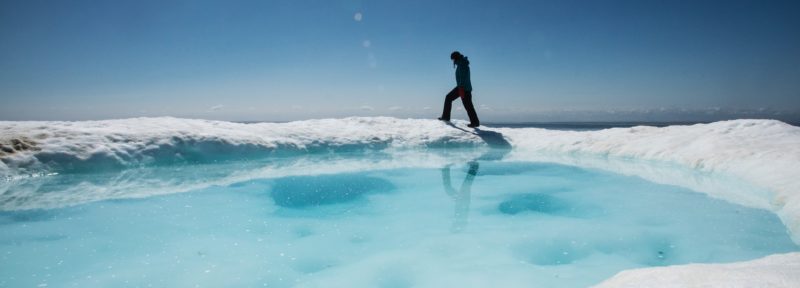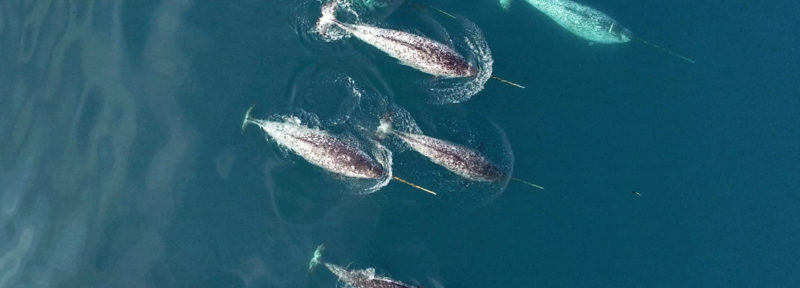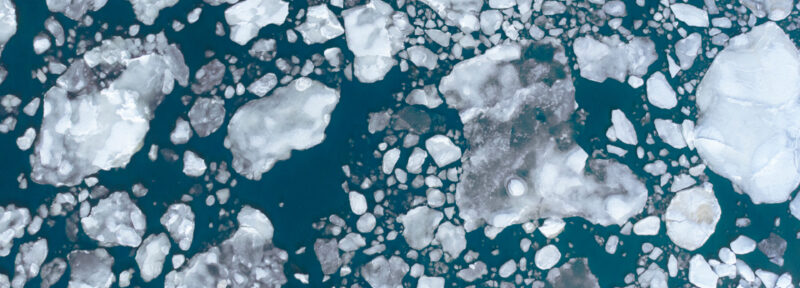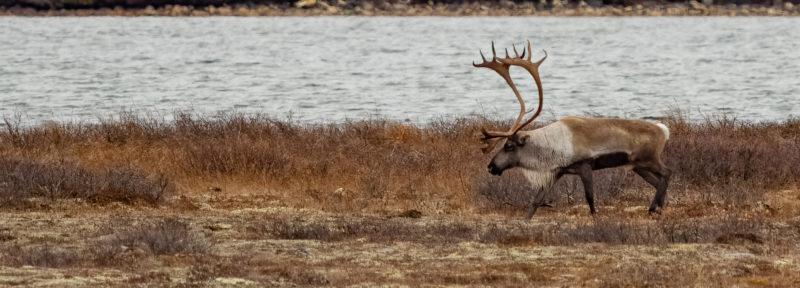Oceans North says Baffinland mine decision reflects concerns for impacts on narwhal
OTTAWA—The Nunavut Impact Review Board (NIRB) has recommended that Baffinland’s Mary River mine—the largest industrial development in the Canadian Arctic—should not be allowed to expand at this time, citing the potential for “significant adverse ecosystemic effects” that “cannot be adequately prevented, mitigated, or adaptively managed” under the current proposal. The decision comes amid serious concerns from nearby Inuit communities about the speed of the development and impacts on wildlife.
The Inuit negotiators of the Nunavut Agreement, one of Canada’s modern treaties, selected Mary River, Nuluujaat, for its vast iron ore deposits. “The Nunavut Agreement makes clear that Inuit fought not only to benefit from mineral resources but also for control of how those resources are developed,” says Hilu Tagoona, Oceans North’s Senior Arctic Advisor. “The board’s decision yesterday reflects the concerns of North Baffin harvesters and community members.”
The mine, majority-owned by Houston-based Energy Minerals Group, proposed to double its production of iron ore, which would bring more large vessels into some of the world’s most important narwhal habitat. “A growing body of scientific evidence suggests that current shipping intensity has resulted in a dramatic decline in the narwhal population,” says Dr. Kristin Westdal, Oceans North’s Arctic Science Director. Baffinland’s own aerial surveys in 2020 and 2021 recorded a 50 percent reduction over successive years. By this count, narwhal in the region are at 20 percent of their population size prior to intensive industrial shipping through Milne Inlet.
Inuit harvesters from Mittimatilik (Pond Inlet) have been raising the alarm and confirm this drastic reduction. The NIRB’s decision recommending against this expansion, known as “Phase 2,” affirms positions taken by the most impacted Inuit communities—notably Mittimatalik—as well as by the Qikiqtani Inuit Association and Nunavut Tunngavik Incorporated.
“The Mary River mine sits on one of the richest iron ore deposits in the world,” says Christopher Debicki, Vice-President of Policy Development at Oceans North. “Properly developed, it will benefit Nunavummiut and all of Canada for generations.”
The recommendation from the NIRB now goes to Dan Vandal, Minister of Northern Affairs, for his review. “We trust that Minister Vandal will respect the NIRB’s recommendation and will secure the careful development of this resource while safeguarding the living resources upon which North Baffin communities depend,” says Debicki.
For more information or to arrange an interview, please contact:
Alex Tesar
Communications Specialist
[email protected]




